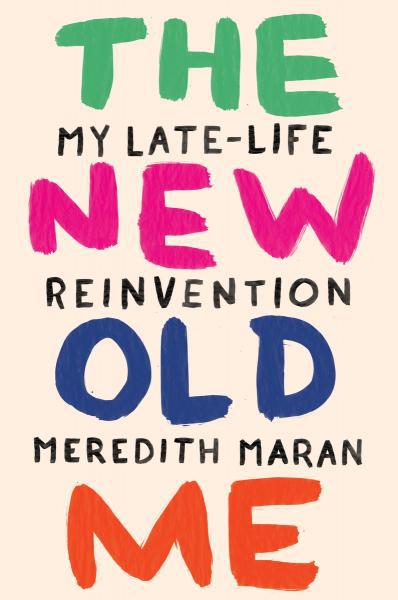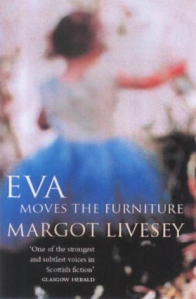(Wikipedia, in its discussion of the term ‘old wives’ tales,” notes that, in this case, a wife is not necessarily a married woman. Like ‘midwife’ or ‘fishwife,’ this usage just designates a woman at a certain age and stage of life..)

(Image from booksmith.com)
I was a twelve-year-old who brought a stack of books home from the library that told me how to be a teenager. The books had titles like How to Find a Teenaged Boy–and What to Do With Him When You Find Him. I read and weighed and incorporated advice. Sometimes, I thought, the advice even worked.
As a young wife, I sought out other guidebooks–Cosmo magazine and novels like The Women’s Room, books by Gloria Steinem and Betty Friedan, and books, too, about pleasing your man. I wanted (oh, naive and foolish young one) to walk that tightrope between alluring and liberated, home-bound and free, between fascinating and untethered. The books gave me examples and helped me weigh my options, look at different models and ways of being.
I read my way into step-momming; pregnant, I read a book a week, devouring works by Berry Brazelton and Penelope Leach; memorizing, practically, What to Expect When You’re Expecting.
When my son was diagnosed with autism, my first stop was the library.
Oh, I have learned by living, too, and by the rich exchanges that take place between those who have traveled uncertain trails and those of us just embarking. But books have bolstered and challenged each facet of my life, giving me confidence, teaching me the jargon, making each new phase seems like navigable territory.
Why should retirement be different?
*****************
A friend I meet in the blogosphere, Kimberly, also recently retired, sends me a message about a book she recently read. It’s called A New Kind of Country, and it’s by mystery writer Dorothy Gillman, circa 1978. Gillman gives up her city life and moves to Nova Scotia when, at 60-ish, her nest empties. A New Kind of Country is a memoir detailing how Gillman acclimated to a whole new kind of life.
I think that sounds like something I should read, but I cannot find the title in any of our favorite libraries. I finally track it down on ThriftBooks.com, and I order it, slow-mail delivery.
While I wait, I think, I will see what other books are out there on the topic. I take young James to the library the next day, and I come home with a stack of books to explore.
****************
The first book I open is Meredith Maran’s The New Old Me: My Late Life Reinvention.
I am dismayed after I read the first few pages: I don’t think I’ll find any common ground. Maran is writing from a very different place than I inhabit. Her marriage recently fell apart; she is leaving free-lancing to take a 9-5 job. She is moving to a city far from where she has been living.
My marriage seems pretty enduring. I have retired from a stable career to begin a free-lance one, and I just had my little house painted: a visual symbol that I am, for a change, staying put.
Maran’s nest is empty, and my 27-year-old autistic son will not be moving out any time soon.
Will I find any commonality here? I am dubious, but I my mother’s voice is loud in my head: Once you commit to a book, she said, you must read until the end. I have relaxed that rule in cases of distaste or disinterest, but I do think Maran’s experience, different as it is, might teach me something. I keep reading.
At the beginning of the book, Maran is a mess: in fact, she’s on her way to the emergency room, having, in her solitary borrowed home, cut herself severely. At the ER, the doctor tells her the wedding ring must come off to save the slashed finger. Maran has to painfully confront the end of her marriage, the removal of a symbol that has, in part, defined her for many years. (Maran’s marriage was to another woman, but her discussion of pain and withdrawal, self-discovery and resiliency, seem to me completely un-gender-bound.)
In fact, as I read on, I see concepts that very much speak to me right now. Maran writes about work and what it means in her life. She is adjusting to a whole new schedule. She leaves free-lance writing to work for a new-age-y corporation; she suddenly has bosses and office mates and a new culture to adapt to. She works to fit into this new environment, and with new coworkers, all of whom are considerably younger. There’s a redefinition going on: I empathize, even as I take an opposite pathway.
I read and I recognize broad, universal themes that are very immediate, very meaningful, for a woman of my age. Don’t all women, having crossed the threshold to sixty, deal with these themes in some shape and form?
Relationship. Maran defines herself as a 60-something divorcee. Although her relationship had long been rocky, she didn’t welcome the divorce. It pushes her to go somewhere she prefers not to visit. And this, I think may be a reckoning all women of this certain age must struggle with.
If we are married, how does the marriage grow and change with our aging?
If single, how do we now define ourselves? What does single mean as we consider next steps, and time’s telescoping, and health issues? Do we want to date–are we anticipating a chance to find a mate, or do we embrace the freedom of our ‘one-dom’?
And what, for heaven’s sake, about Sex and the Sixties?
Home. Maran couch surfs while she settles in to a brand new city, meeting interesting people in the neighborhoods she inhabits before first renting an apartment and then, finally, buying a house. Her vision of ‘home’ is hammered in a new kind of fire.
And I think that has to be true for all of us during these years. I see friends down-sizing and buying condos. I know a couple who sold their house and bought an RV, whose concept of home has become mobile. I know city dwellers who’ve built homes in small towns, and farmers who’ve embraced city life to be closer to kids and grandkids.
And some of us stay, morphing our homes to new purposes, new challenges, to new uses and new joys. Whatever path we choose, we consider ‘home’–what it means, and what we need.
The Physical Me. There’s a strenuous emphasis on fitness and wellness at Maran’s new job; she gets a gym membership and a personal coach and the opportunity to jog alongside coworkers twenty years her junior. She confronts her aging, less-than-toned self.
And don’t we all have to slam, unwilling and appalled, into that mirror? How will we take on the physical changes this time of life brings? Will we dye? Nip and tick? Start a new exercise plan? What are the health realities we need to deal with?
Oh, the wrinkles.
Oh, the hammer toes.
Loss. Kids leave home and parents die, and this age and stage brings inevitable losses with it. Maran’s sons are far afield, and her father is failing fast.
Dealing with aging parents is something we all go through: mine died when I was much younger, but Mark’s mom is now an eighty-something widow in a town far away, and that consideration defines one part of our life together. Our older son is closer now, geographically, to that Grandma than to us. Holidays and birthdays and proximity are things we must consider. Planning for care and the inevitable day when Mark’s mom must leave the family homestead are present in our awareness.
We struggle with our friends and their health issues. We lose essential people.
“Loss is coming,” this time of life whispers insistently. It doesn’t matter if we’ve never married, become unmarried, or have stayed married through thick and thin. We all struggle with parents and beloved kids–ours or someone else’s–growing, changing, moving away. We all mourn the friends who leave us.
Self Knowledge. Maran learns a great deal about herself, about her relentlessness and insistence on perfection, about her high and sometimes unreasonable standards for herself. But she is open to that learning, and by the end of the book, she has grown, she has changed. Friends comment on this.
Her friend Dana, for instance, tells her: “Last time I saw you, your whole life was falling apart. And now look at what you’ve created. I’m so impressed.”
And Maran writes, “I’m getting used to people coming here and saying that. But it never fails to make me very grateful.”
What a luxury and a gift–the opportunity to deeply confront and know ourselves, not as defined by others or by job or role, but as experienced in our hearts and souls and bodies. This time of life brings that opportunity home–our last real chance, perhaps, to grasp it.
New Vision. Whatever our circumstances, this time of life demands a clear-eyed look at the future. Maran struggles to create a new picture of what happiness means, of what success is. Does she want and need to be half of a couple? Should she listen to friends who warn that another mate may never come along, that good-enough is better than alone? She sees herself as a single home-owner. She embarks on a workshop, accepted into a prestigious program she’d applied to as a lark. She lets go, and she receives new knowledge and new gifts.
As retirement settles around me like falling cloth, I see the need to recreate the vision, too. Who am I now? What is it I want to accomplishment in the next years? Where do I want to travel, and how do I want to go?
*********
Maran is feisty and persistent, and the three-year struggle she documents in her book is sometimes surprising, sometimes funny, and sometimes achingly sad. But she is triumphant, even if that triumph looks different than she ever could have planned. She embraces, finally, new challenges, new opportunities, new friendships. Toward the end of her story, she writes, “Drifting toward sleep, I wonder what I’ll come up with next year. Because it’s never too late to try something new.”
**************
I resonate to that openness to newness and change. And I wonder if the themes I see here, in Maran’s honest and uplifting book, are the same themes I, and all my sisters of this certain age, encounter.
I suspect they are, but I know what I have to do. I need to find a whole lot of other ‘old wives tales,’ and I need to read them all.
**************
Advertisements Share this:




